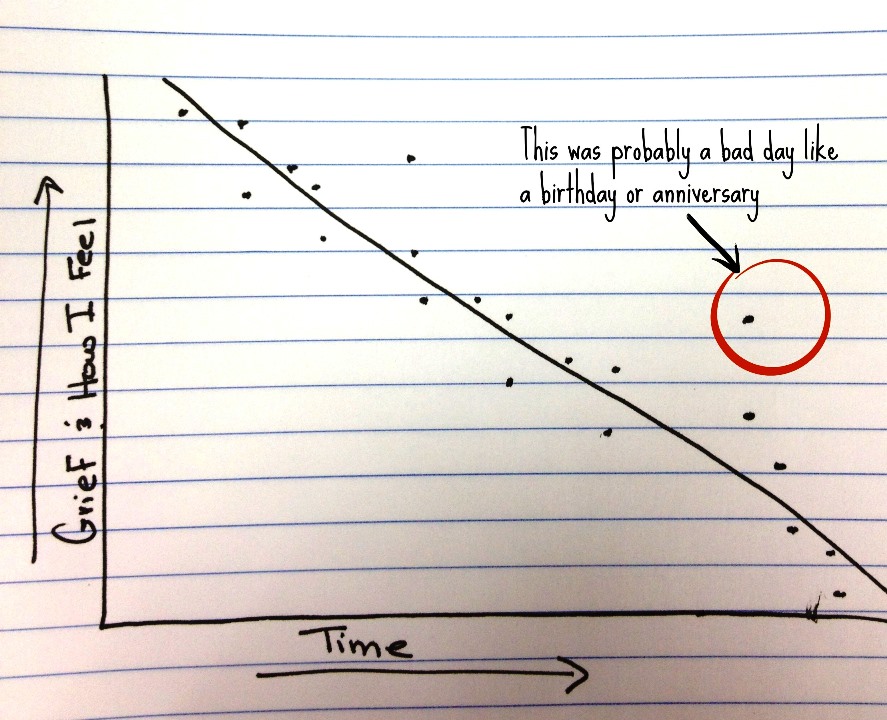|
The material below is taken from What's Your Grief? blog:"The idea of a grief timeline is somewhat of a misnomer. Anyone familiar with grief understands that associated feelings, setbacks, breakthroughs, roadblocks, triggers, and resolutions can occur at unexpected, unpredictable and inexplicable times and durations. Grief is not a race with a start and finish line, it’s a labyrinth with twists and turns and dead ends. Grief is like trying to swim past the break in the ocean – you wade in but every once in a while a wave comes up and knocks you back a few feet. You’re still deeper than when you started, but not as deep as you were before the wave hit. How long will it take you to get past the break? It depends on your strength, the ocean, the tide and the weather. Grief cannot be mapped on a timeline, although ‘Normal Grief’ should be negatively correlated with time. This means the more time that passes, the less extreme and agonizing grief feelings should be. There will still be bad days, but overall it’s average intensity will diminish. It looks a little something like this…
Here are a few small indicators you might be making progress in your grief. I find it important to note, you can take steps forward, yet still grieve your loved one...The capacity you have to be happy, enjoy life, and love others exists in addition to the love you feel for your deceased loved ones. Because love…love is infinitas.
|

